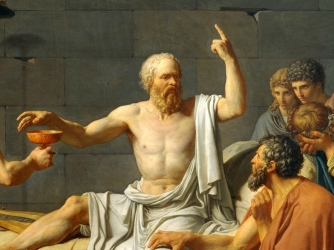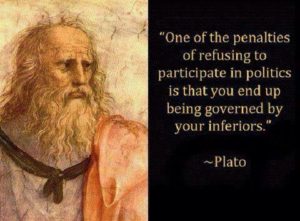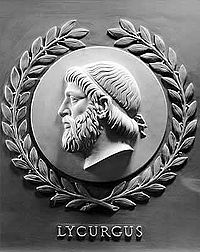Moralism and Moral Arguments in the War for Western Survival, Part 3
Is It Possible to Develop a Specifically Moral Argument for the White Past of Conquest and Slavery?
A second message is that in order to appeal to a wide range of Whites, we have to fashion an underlying moral message or at least have good rejoinders to the moral arguments of others. We already see that to some extent among conservatives who have nothing but scorn for the Alt Right. They emphasize the treatment of women and homosexuals in Muslim countries and refer to “radical Islamic terrorism” — implying that the terrorism has something to do with Islam (while avoiding the idea that jihad is central to Islam. They will bring up the criminality and lack of labor participation of Middle Eastern and African immigrants. These are effective moral arguments because they argue for immoral, unfair effects on the traditional populations and culture.
But this doesn’t really get at the overriding moral argument that uniquely evil Whites are responsible for the actions of their ancestors in conquering land settled by others, slavery, etc. Of course, these accounts are carefully contextualized to ignore things like morally crusading Whites who uniquely ended slavery after a campaign based on empathy for far-away Africans. Whites ended slavery, passed Civil Rights, have funded endless uplift programs for Blacks, and twice elected a Black president — the liberal tradition so common among Northern Europeans aided and abetted in contemporary times by our hostile Jewish elite.
Also ignored are the characteristics of Whites and non-Whites that feed into current realities (e.g., IQ and personality differences, the Faustian soul of the West, etc.). Apart from the West, I have yet to hear of a movement opposed to slavery or anything else that worked by eliciting empathy. Appeals like this only work with Wersterners. These movements are a Western phenomenon and the media thrives on showing photos of suffering refugees and immigrants; “we need to help them,” never mind the short term and long term costs to our own people.
Pressing the guilt/empathy button doesn’t work in Africa or Asia despite the fact that huge swaths of humanity there (Arabs, Han Chinese, Bantu) have achieved their present territories as the result of the conquests of their ancestors. And slavery persisted in these areas long after it was abolished in the West. And even if these areas were prone to messages of guilt/empathy, you won’t see them there because these societies are not controlled by elites hostile to their traditional peoples and cultures of those areas.
One does not see Chinese people agonizing over the fact that the Han Chinese greatly expanded their territory at the expense of other peoples—a point brought out by Ricardo Duchesne in his groundbreaking The Uniqueness of Western Civilization. Nor does one see the Bantu peoples of Africa worrying about the ethics of displacing other African peoples as they spread far and wide from their homeland in Central Africa, including into South Africa where their treatment at the hands of White South Africans became Exhibit A for White evil during the apartheid era; nor do the Bantu-speaking peoples agonize about the widespread practice of slavery in Africa. Arabs do not apologize about their conquests in the name of Islam or their centuries-old role in slavery and the slave trade.
The lack of contextualization and the continual deluge of messages hostile to the White majority are good indications that the button pushing is an exercise in propaganda emanating from a hostile elite, enabled because of their control over the moral, intellectual, and political high ground. It’s not just emotional buttons that are pushed. Some of these memes are much more purely intellectual — a good example is the “race does not exist” meme, although I suppose many of these terms have emotional overtones as well because they are often linked in such a way that that they plug into the guilt mechanism. This means that they are addressed to the higher brain centers which are able to exert substantial control over the more primitive (and self-preserving) lower brain centers responsible for things like ethnocentrism. Control of the media and the academic high ground by the left means that Americans are bombarded by messages that enjoin them to inhibit their natural self-preserving tendencies and indeed, to feel guilt for them. These messages have also filtered down to churches and schools, so, unless they tune in to dissident media on the internet, Whites can spend their entire lives without hearing any contrary messages. It’s hard to overcome that.
Only Whites have been made to feel moral disgust at their own past of conquest and expansion. And only Whites—not all, to be sure, but a significant and important proportion—have felt moral outrage about slavery, to the point of banning it despite its material benefits to the society as a whole and to a great many individuals much more like themselves than the slaves they were freeing.
But this “everyone does it” is not really a moral argument, but rather an argument based on how we understand human nature and genetic self-interest, combined with showing that Whites uniquely developed moral arguments against the very things they were so good at—colonization and slavery. As an evolutionist, I am quite comfortable with these because they have been common throughout human history and again, Whites uniquely ended slavery. But the “anti-racist” answers that Whites have no moral claim to North America, Australia, and New Zealand, and that present-day Whites have “White privilege” as a result of the immoral actions of their ancestors. Of course, such an argument would not apply to Europe where we see the same phenomena of massive non-White immigration presented as a moral imperative.
So be it. Can Europeans make a moral argument to retain the lands they have controlled since the glaciers receded? Is longevity in a certain area a moral argument? I think not. But if it is, it would apply to every other people in one way or another, as Jared Taylor notes in a recent video. We would find that some native American groups displaced others, and we would talk about the Aztec empire and its subject peoples. Even the Hawaiians who came to the pristine islands eventually developed a society dominated by a particular chief that unified the islands at the expense of their close relatives holding power on the various islands but vicious fighting took place long before that between various islands. So then the White people take it over and suddenly we have a moral crisis. It’s what they call “selective prosecution.”
Fundamentally, if we take the ethical perspective that dominates the West today based on fairness and impartiality rooted ultimately in individualism and egalitarianism, we cannot make a specifically moral argument for White conquest. Such a perspective was foreign to the ancients who prized aristocratic values and were profoundly opposed to egalitarianism. In The Genealogy of Morals Nietzsche sketches this alternative morality — the morality of the strong versus the morality of the weak, the ethical world view of our Indo-European ancestors.
There is nothing strange about the fact that lambs bear a grudge towards large birds of prey: but that is no reason to blame the large birds of prey for carrying off the little lambs. And if the lambs say to each other, ‘These birds of prey are evil; and whoever is least like a bird of prey and most like its opposite, a lamb, – is good, isn’t he?’, then there is no reason to raise objections to this setting-up of an ideal beyond the fact that the birds of prey will view it somewhat derisively, and will perhaps say: ‘We don’t bear any grudge at all towards these good lambs, in fact we love them, nothing is tastier than a tender lamb.’ – It is just as absurd to ask strength not to express itself as strength, not to be a desire to overthrow, crush, become master, to be a thirst for enemies, resistance and triumphs, as it is to ask weakness to express itself as strength. (25–26)
The point of the left is to abolish any argument for retaining control of any territory for historically White countries—open borders for Whites and only for Whites. There are a variety of motives: hatred for Whites as ethnic competitors, monetary compensation (the massive infrastructure that incentives anti-White activism), and virtue signaling for many White SJW’s made possible because the control of the media by the left has created a morally defined community opposed to the legitimate interests of Whites. Forget about ecological arguments—that bringing in 1 million plus immigrants yearly is an ecological disaster, forget about arguments from IQ, welfare dependency, criminality, not to mention the ethnic genetic interests of Whites. Forget about intellectual consistency — these people would be horrified at the thought that Korea or Nigeria ought to have displacement-level immigration. We are asked to ignore the evil effects of the racialization of politics and increasing political violence as non-Whites coalesce in the Democrat Party, the disuniting of society as community ties are destroyed, less willingness to contribute to public goods, etc. These consequences of the invasion all have clear moral overtones and they support our interests because they have negative impact on people who cannot control the behavior of some of their ancestors.
Was it fair to the traditional White majority to bring in these millions of non-Whites given that the flood gates were opened by the 1965 immigration law presented dishonestly as having no effects on the ethnic balance of the country? Was it fair given that the arguments in favor of ending the bias toward Europe were the result of scientific fraud and developed by Jewish ethnic activists motivated by hatred toward the traditional White populations of the West?
Conclusion
In conclusion, I would love to be able to present a specifically moral argument within the current egalitarian zeitgeist for why it is morally okay for White people to take over North America at the expense of the natives. I can’t do that. Being susceptible to such moral arguments may well be part of our nature. But if so, we have to get over it. I suspect that the people in this room are quite proud of the accomplishments of our ancestors. And as an evolutionist, I have no problem with that.









